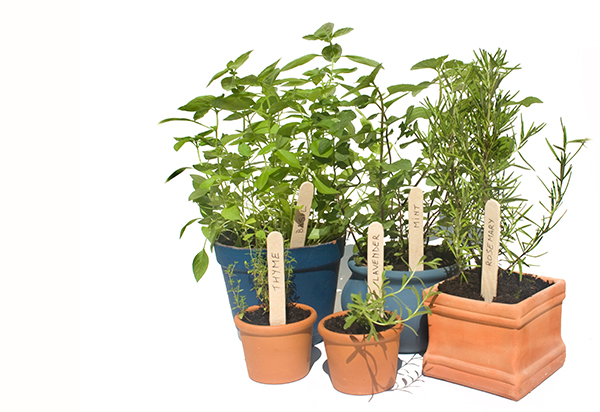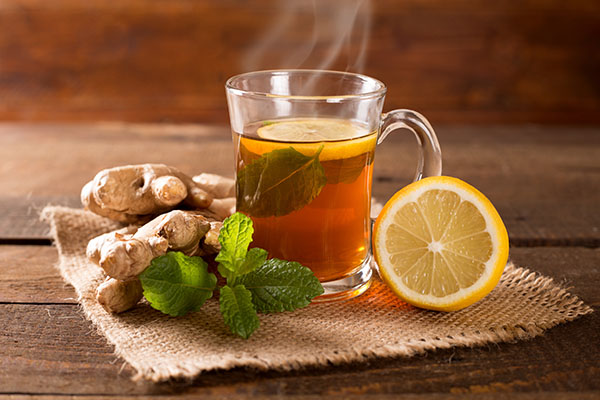
Nutmeg is a versatile ingredient that can be used for both sweet and savory goods. It offers health benefits and contains antioxidants that can protect against free radical damage.
Where does nutmeg come from?
Nutmeg comes from Myristica fragrans, a tropical evergreen tree indigenous to the Banda Islands in the Moluccas (Spice Islands) of Indonesia.
It's unclear exactly when nutmeg was first discovered, but experts say that as early as the 6th century A.D., nutmeg has been traded in the Greek colony of Byzantium, which was later known as Constantinople -- now modern-day Istanbul.
It's believed that the spice traveled as far as Rome, where it was sold as a flavoring and was known for its health benefits and effectiveness as an aphrodisiac. (Related: Keep well this winter with these warming spices packed with health benefits.)
Cooking with nutmeg
Nutmeg is a great spice to have in your kitchen because it can be used in a wide variety of recipes. Nutmeg has a warming, slightly nutty flavor that's also perfect for beverages like mulled wine and chai tea. Nutmeg can be used on its own or paired with other spices like cardamom and cinnamon.
Nutmeg goes well with cakes, cookies, gingerbread and muffins. You can use it to make desserts like nutmeg cheesecake, cinnamon sugar pull-apart bread, cinnamon nutmeg scones or spice Bundt cake. Nutmeg can also be added to savory dishes like curry.
Nutmeg is usually sold in its ground form. But if you prefer whole nutmeg, try visiting larger supermarkets that may sell them. Whole nutmeg should not smell, so if you can smell any mustiness do not buy it.
Health benefits of nutmeg
Here are some of the benefits of using nutmeg:
Contains powerful antioxidants
Nutmeg seeds are tiny, but they are full of plant compounds that act as antioxidants in your body.
Several studies have looked into the organic antioxidants from dietary plants as they can protect cells from oxidative stress caused by harmful free radicals. Free radicals are unstable molecules that can damage cells and their components.
Supports healthy skin
Research has found that nutmeg is a powerful antimicrobial, antioxidant, antiseptic and antibacterial agent that can support skin health and function.
When mixed into a cream, nutmeg helps reduce inflammation and irritation of the skin while promoting hydration.
Can spice up your sex life
Nutmeg is also considered an aphrodisiac. The Hindus believed that a pinch of nutmeg could improve sexual desire and performance.
While there is no specific human evidence of this, it is widely known that a bit of nutmeg can improve male libido.
Has antibacterial properties
Research suggests that nutmeg oil has antiseptic properties that can inhibit the growth of harmful bacteria.
Things to consider before using nutmeg
When consumed in small doses, nutmeg is considered safe. However, large doses could trigger adverse effects.
Nutmeg contains two compounds called myristicin and safrole which, when ingested in large quantities, can cause you to hallucinate and lose muscle coordination.
While there are no specific guidelines on how much nutmeg you should consume per day, it is recommended that you do not exceed one to two milligrams a day. Studies show that toxic reactions occur when nutmeg is taken at five grams and above.
Purchase clean, organic nutmeg and use it to make hot chocolate or delicious desserts for the family.
Visit Herbs.news to learn more about nutmeg and other beneficial herbs and spices.
Watch the video below to learn about 12 herbs and spices that can help boost your immune health.
This video is from the Natural News channel on Brighteon.com.
More related stories:
Exploring the appetite-enhancing effects of nutmeg oil.
Lost your appetite? Experts say nutmeg oil can bring it back.
Researchers explore the health benefits of African plants and spices.
Sources include:
Please contact us for more information.






















